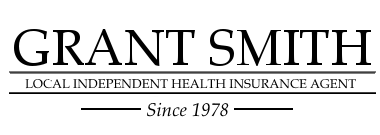It doesn’t cost any more to have a personal, independent health insurance agent…it pays!
If you have questions about your policy give us a call!
Allowed Charge
Allowed Charge – A discounted fee that insurers negotiate with doctors, hospitals and other health care providers in their network. Negotiating charges reduce costs for you and the insurance company. It’s a key reason why insurers create incentives to use in-network providers and why you pay more when you don’t. Unlike providers outside the network, those who are in-network have agreed to accept the discounted fees as full payment for services rendered. Each insurer has its own list of allowed charges.
Allowed Maximum Benefit
Allowed Maximum Benefit – The maximum amount an insurer will pay per year. If your care is so costly that it tops this amount, you’re required to pay the difference. However, most individual plans don’t set an annual maximum benefit.
Benefits
Benefits – Services or supplies your health plan agrees to cover. Covered benefits and excluded services differ from plan to plan.
Catastrophic Coverage
Catastrophic Coverage – An insurance safety net for especially costly health services like hospitalization. Catastrophic plans are appealing because their premiums may be lower than with traditional insurance. But they also have high deductibles, which means the plan begins providing coverage only after you’ve paid a specified amount. Some plans require you to pay a deductible of $10,000 or more before coverage kicks in.
Claim
Claim – A request for payment that you, your doctor, a hospital or another health provider submit to an insurer for covered items or services. Examples include a visit to the doctor or a wheelchair.
Coinsurance
Coinsurance – A fixed percentage that allows you to share the costs of your covered health care services with your health insurance company after your deductible has been met.
Copayment (Copay)
Copayment (Copay) – A copay is a fixed amount (for example, $30) that you pay at the time of a health care service (such as a doctor’s visit).
Cost Sharing
Cost Sharing – The arrangement that defines how you and an insurer pay for insured services or items. Coinsurance, copayment and deductibles are all forms of cost sharing. Premiums, payments for uncovered health care supplies or services, or fees paid to out-of-network providers are not shared costs.
Deductible
Deductible – The amount you have to pay for expenses before the insurance company will start to pay on the remaining costs. As an example, if your deductible is $2000 and your medical bill is $2500, you will pay the first $2000 and the insurance company will cover the remaining $500. Once a deductible has been paid, it has been “met” for the year, and no additional costs will have to be paid toward that deductible.
Essential Health Benefits
Essential Health Benefits – Categories of health services the Affordable Care Act requires certain health insurance plans to cover beginning in 2014. These include outpatient surgery, emergency services, hospitalization, maternity and newborn care, mental health and substance abuse services (including behavioral treatment and prescription drugs), rehabilitative and habilitative services and devices, laboratory services, preventive and wellness services, chronic disease management, and pediatric services that include oral and vision care. Each state, however, will have significant latitude in establishing these benefits. Under the ACA, all plans were required to phase out annual dollar spending limits for these services by 2014.
Exclusions
Exclusions – Items or services that aren’t covered under a given health plan and for which the plan won’t pay. Exclusions are specified in your contract for insurance. For instance, many policies will not pay for maternity care or services related to a preexisting condition. The Affordable Care Act mandates that insurers aren’t able to deny coverage due to preexisting conditions.
Formulary
Formulary – The list of medications, prescription or generic, that your insurance plan will pay for. A formulary may also say how much you pay for each drug.
Health Maintenance Organization (HMO)
Health Maintenance Organizations (HMOs) – HMOs require that you select a primary care physician (PCP) who is responsible for managing and coordinating all of your health care. If you need care from a physician specialist in the network or a diagnostic service such as a lab test or x-ray, your primary care physician (PCP) will have to provide you with a referral. If you do not have a referral or you choose to go to a doctor outside of your HMO’s network, you will most likely have to pay all or most of the cost for that care.
Individual Health Insurance
Individual Health Insurance – Plans purchased by people who can’t obtain coverage through their employer or the government. These plans are often more costly than group plans. Under the fully implemented Affordable Care Act, no insurance plan will be able to reject an applicant because of a preexisting condition.
In-Network
In-network – These are the providers that have contracted with your carrier and agreed to provide services at a discounted rate.
Lifetime Maximum
Lifetime Maximum – The total an insurance company will pay out during your lifetime. For example, an insurer might place a $1 million lifetime cap on all your covered benefits. Or it might place limits on specific benefits, like a $200,000 cap on payouts for an organ transplant. After you reach your lifetime maximum, the plan will no longer pay for any covered services.
Medically Necessary
Medically Necessary – Services or supplies that meet accepted standards of medical practice and are essential for the diagnosis and treatment of your health condition.
Out-of-Network
Out-of-network – All providers that have not contracted with your insurance carrier and therefore won’t offer discounted rates. Using out-of-network providers will usually cost more.
Out of Pocket Maximum
Out-of-pocket maximum – This is the maximum dollar amount you pay in your deductibles and coinsurance during one plan year. Once you hit your maximum, your health carrier usually pays 100% of the allowed amount for covered medical services. This resets every year.
Preferred Provider Organization (PPO)
Preferred Provider Organizations (PPOs) – A health plan that has contracts with a network of “preferred” providers from which you can choose. You do not need to select a PCP and you do not need referrals to see other providers in the network. If you get health services from a doctor or hospital that is not in the preferred network (known as going “out-of-network”) you will pay a higher amount. And, you will need to pay the doctor directly and file a claim with the PPO to get reimbursed.
Premium
Premium – The amount of money paid, usually monthly, by the policyholder to the insurance company. This is the cost the consumer pays to be covered by an insurance policy (contract).
Preventive Care
Preventive Care – Services that prevent illness or detect illness at an early stage, such as flu shots and screening mammograms. The plan brochure should list covered preventive services. Under the ACA, all plans are required to provide free preventive care.
Primary Care Visits
Primary Care Visits – Primary care doctors perform routine medical exams and other uncomplicated medical services. They include internists, OB-GYNs and pediatricians.
Specialist Visits
Specialist Visits – Some conditions require the care of a doctor with narrower but deeper skills than a primary care physician can offer. A cardiologist, for example, knows more about the heart; a nephrologist knows more about kidney problems.
Urgent Care
Urgent Care – Care for an illness, injury or condition serious enough for immediate care but not so severe as to require emergency room care. Visiting an urgent care center may be cheaper than the ER. However, most plans offer only partial payment, requiring either a copay or coinsurance.

Business Hours:
Our Location

Grant Smith
Insurance Agency, LLC
2916 Pine Grove Avenue
Port Huron, MI 48060
Phone: (810) 984-1373
Fax: (810) 984-1384
Email: grantsmith@grantsmith.com
Located at:
Note:
The Grant Smith Health Insurance Agency is not affiliated with the U.S. Government or Federal Medicare Program.
Third Party Organization Disclaimer
“We do not offer every plan available in your area. Currently we represent three organizations which offer 25 products in your area. Please contact Medicare.gov, 1-800-MEDICARE, or your local State Health Insurance Assistance Program (SHIP) to get information on all of your options.”



